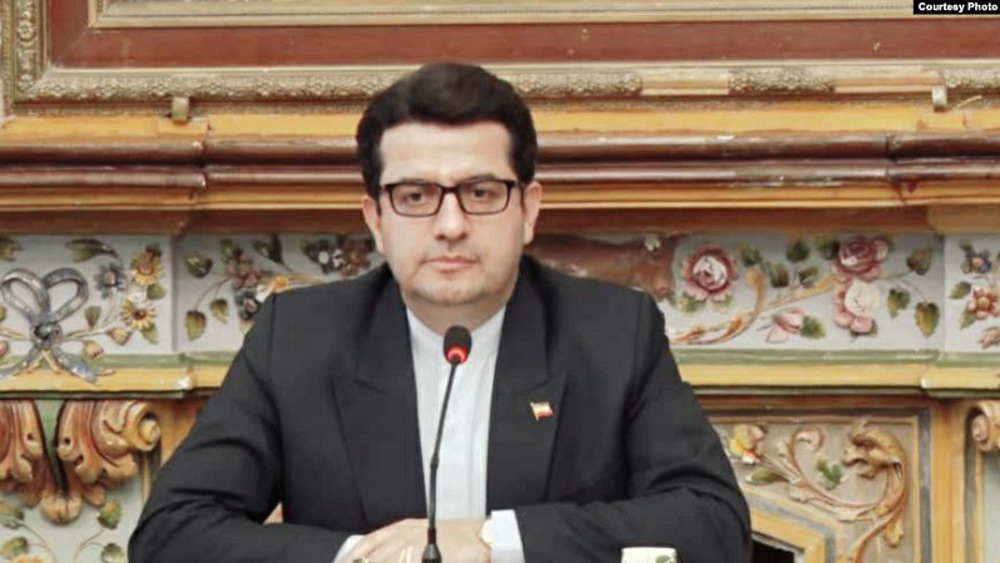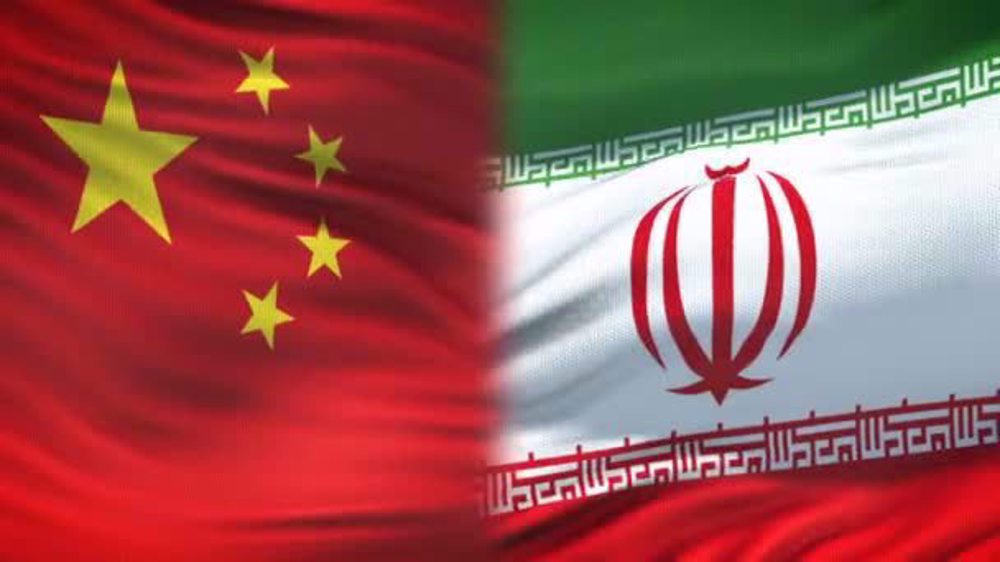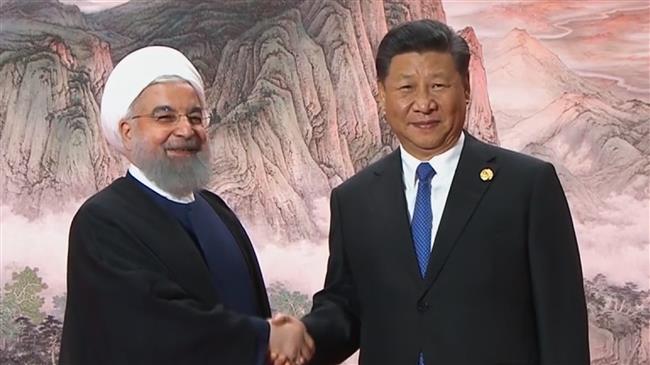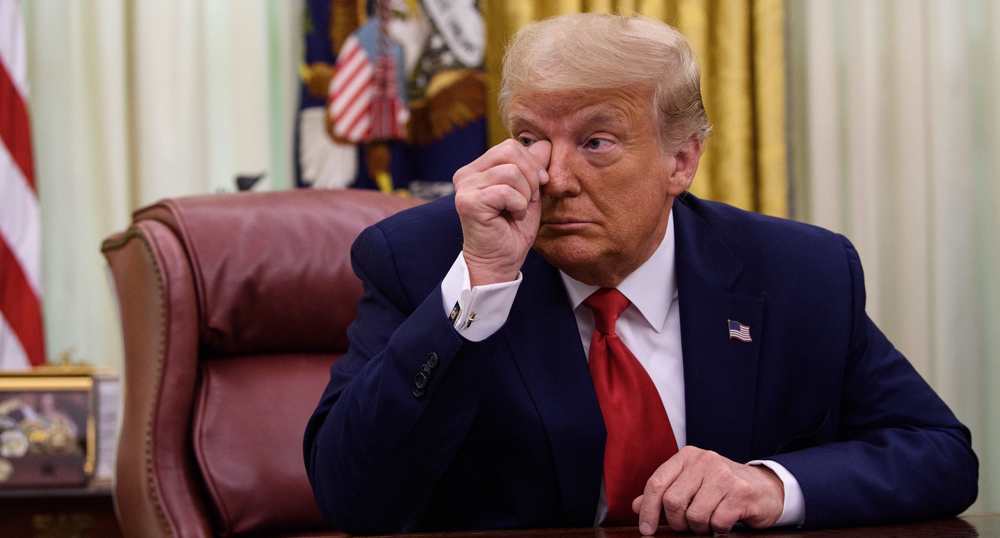Proposed 25-year Sino-Iranian deal has the West worried
The proposed 25-year roadmap between Iran and China, titled “Comprehensive Strategic Partnership between I.R. Iran and P.R. China”, has unsettled foes and alarmed fellow-Iranians. Subsequent to the unilateral US withdrawal from the JCPOA, or the nuclear deal, the prospect of a long-term all-inclusive energy and security deal with China gave the impression that Iran was, as the West saw it, falling into the lap of China; to become a client state.
Many see China, an up and coming economic power, as taking advantage of weaker nations, mostly through the Belt and Road initiative, an attempt at reviving the old silk road, which would give it access to Europe and the Black Sea by land, should Georgia grant access to its Black Sea ports. It would enhance China’s position not only in West Asia, but in Central Asia and the Caucuses.
Professor Vafaii, science group chair at Tehran University’s China Department, asserts China is looking to win a toehold in the Middle East, where it has so far been kept out of the loop on certain matters such as the Israeli-Palestinian issue, were China has sought to become active, having recently appointed a Middle East special envoy.
These are some of measures China is undertaking in this sector. China has been trying to improve its ties with Iran. It is also willing to be present in Iraq and Syria, not for war, but for reconstruction. Iran is one channel giving China access to the Middle East. Iran has connections in both Syria and Iraq and China is benefiting from these privileges. Iran can introduce lucrative projects to the Chinese who may not know the region quite well.
One belt one road project which is called Silk Road sometimes, goes to the central asia and from there to north Russia, northern part of EU actually, and then it goes to the middle and southern part of EU, through Iran. Kazakhstan, Turkmenistan, Iran and then Europe.
Professor Vafaii, Tehran University
For Iran this would translate into an injection of ($280bn) for its energy sector and ($120bn) for manufacturing and transport infrastructure. In return for a discounted oil-flow to China and preferential Chinese access to various sectors of the Iranian economy, Iran would have its infrastructure given a much needed boost. The deal includes 100 projects which defy US unilateral sanctions against Iran.
Everyone welcome bar Israel
Iran would welcome any country, with the exception of Israel with which all interaction is proscribed, willing and able to come and operate these projects.
It is others who refuse to cooperate with us. If we have no economic ties with the US following the 1979 embassy hostage-taking, it was the Americans who cut ties with us. Those who claim that Iran is being colonized by China can come and we will offer to sign similar agreements with them.
Majid Reza Hariri, Iran-China Chamber of Commerce, Chairman
The 25 year plan was agreed on originally in 2016 and was only drafted last summer. Apart from the length of the deal, all else is speculation.
Benefits for all
All parties involved would benefit, airports in Iran would be developed, high speed and underground trains would be procured. China would develop free trade zones in Maku, in northwest Iran, as well as Abadan in southern Iran and on some southern Islands such as Gheshm. Kish is not even the best candidate for the development programe, despite unfounded rumors, let alone being leased out to China.
We would need $70-80 billion a year of investment in our economy. But the size of our economy and our domestic resources make it impossible. We don’t have such money to invest in our economy. Therefore, we need to attract foreign investment. At least half that amount has to be supplied by foreign investors. That is why we have set up the Foreign Investment Attraction Organization within the Ministry of Economy and Finance.
Majid Reza Hariri, Iran-China Chamber of Commerce
We have transit routes. These are our advantages. We are located at a geographical position providing best connection between East and East and North and South across the globe.
Majid Reza Hariri, Iran-China Chamber of Commerce
This 25-year plan is a good one. We have to have a plan before any cooperation with another state. This plan covers many sectors like IT, 5G, AI. China is skilled in these sectors and you must know that even many states with no strategic alliance with China are cooperating with it in these sectors. We should not lose such potential.
Professor Vafaii, Tehran University
The supposed Kish deal
The Iranian foreign ministry spokesman, Seyed Abbas Mousavi, who has now been appointed to the position of ambassador to Azerbaijan, has dismissed unfounded claims of Iranian islands in the Persian Gulf being leased out to China, oil sold at exclusively low prices, or the deployment of Chinese armed forces in the Gulf, an invading force in Iranian waters that is. He said such claims were too ridiculous to even merit a denial. Apparently the Chinese response to the allegations was not so different.
If you look at the agreement, we have military cooperation. So, what is it? It is for example common maneuvers which they usually do with any other country; it is training forces, or exchanging some war technologies. They don’t want to have bases in Iran, they are not going to dispatch arms into Iran’s soil. These things are very good.
Former Iranian Diplomat, Mahdi Safari
Global reaction
Mr. Khoshrou, a media and communications expert, believes what is happening currently on social media stems from certain think tanks led by Western governments, particularly the United States. To spread rumors, they are using various psychological tactics across Iranian media. For instance, they have created various hashtags like “No to Iran Sellout!”

Labeling is one of their serious techniques currently under way in an attempt to call into question the planned Iran-China treaty. They are spreading rumors about Iranian islands, Chinese military presence in Iran and establishment of Chinese military bases. Priming is another tactic they are pushing ahead with.
Based on our monitoring of social media, we spotted the first analyses on the Iran-China cooperation plan in US media. What the mainly US media claim is reproduced in social media, particularly Twitter. Those who are active in cyberspace and social media include users affiliated with the Zionist regime, users affiliated with the Mujahideen Khalq Organization as they are supposed to insinuate wrong interpretations into public minds in Persian language. MKO agents based in Albania and benefiting from Western funding are involved. The Zionist regime and Saudi Arabia are also cooperating by spending money and offering human resources.
Hamed Vafai, China Affairs Analyst
What is in it for China?
China is supposed to receive preferential access to various sectors of the Iranian economy, and a discounted influx of oil and energy resources; without monopoly according to the Foreign Ministry. Once enforced, the pact will act on more than the economy. It will include unprecedented levels of collaboration in transport and logistics in Iran’s southern ports and islands, AND its defense and security sectors.
“Two ancient Asian cultures, two partners in the sectors of trade, economy, politics, culture and security with a similar outlook and many mutual bilateral and multilateral interests will consider one another strategic partners,” the document says in its opening statement.
Professor Vafaii points out that:’ in China’s Muslim-dominated Xinjiang, many prefer halal foodstuff. Turkey’s ties with China are strained because of its support for separatist Muslim groups based in China. That gives Iran big potential, but Iran has done nothing. For instance, Persian carpet has a good market there. The market is big with 50-60 million consumers. We can export prayer beads and prayer rugs there.”
The two countries, in 2016, expressed their determination for such extensive cooperation. As stipulated in Article VI of the communiqué issued during the Chinese president’s visit to Tehran, the two ancient Asian nations explicitly expressed their political determination to promote and deepen relations strategically by devising a comprehensive 25-year roadmap as the basis for coherent and all-out expansion of the political and economic relations between Iran and China.
From as early on as 1995, Iran has been aware of the importance of the Beijing- Tehran axis as a counterweight to the U.S.-led global order. Iran and China share a desire to engage in revisionist regional moves without wanting to start a large-scale war; to put an end to US imperialism and military supremacy in the Persian Gulf region. It IS a valid question however, whether this will not lead to a Chinese show of military might in the region.
Our ties with some nations may be focused on a single aspect like agriculture, culture and energy. But with China, we have reached the conclusion that we can cooperate in academic, cultural and IT and economic sectors. And regarding the strategic aspects, our ties with some countries may be periodic. But the Islamic Republic of Iran and the People’s Republic of China eye long-term cooperation.
Hamed Vafai, China Affairs Analyst
The roadmap has been approved by both governments yet it is still far from being a concluded deal. The merits of the deal are being presented to parliament as the lawmakers must approve the deal before it can be enacted.
Why Now?
In spite of In spite of the 8-year War-of-the West on Iran in the name of Iraq dueing the 1980’s, Iran still looked to the West for trade and development. But sanctions were ongoing; easing and gripping time and again. Finally, Iran and Western powers plus China and Russia did come to an agreement the JCPOA.
Iran and China came to their 25-year understanding in 2016, when the JCPOA became operational, but that is as far as it went. But when Trump’s USA pulled out of the deal in 2018; illegally most would say and reimposed and imposed crushing sanctions on Iran, the Iran-China understanding became a harsh reality to the US and allies. US pressure reached the crunch of the matter, at an opportune time, when the Iran-China pact is ripe for the signing.
China is gradually growing into the world’s top economic power. Naturally other economic powers, i.e. the US and the EU, would not be happy and naturally China will face a global tirade. That was one aspect. The other aspect is that some Iranians living inside or outside of the country are opposed to the entire Islamic establishment. That’s an undeniable fact. We have some opponents wielding effective propaganda tools. They have penetrated our public opinion through their TV channels. When domestic and foreign opposition close ranks they would paint a fake image of Iran.
Majid Reza Hariri, Iran-China Chamber of Commerce
Come October, the arms embargo foreseen in the JCPOA comes to an end, and US President Trump, no longer party to the deal, wants to renew those sanctions while at the same time pressing for negotiations with Iran. The deal with China answers the insult in kind. It works for China too, as that country is locked in a trade war with US, waged by the US. Also it has tired of being subject to the threat of secondary US sanctions for dealing with Iran.
Keeping to the JCPOA
Until recently, the US has pursued the carrot and stick policy vis-à-vis China, but now the US is convinced that China is a strategic threat to its interests and this issue has been reflected in official reports from US security bodies.
The East, as far as the nuclear deal is concerned, has shown greater support for Iran. That Joint Comprehensive Plan of action or Iran nuclear deal was signed Between Iran and the 5 permanent UN security council members the US, UK, France, China, Russia plus Germany, that’s the P5+1. The US pulled out and waged more sanctions. Western Europeans stayed in, but slunk out of trade deals with Iran, which were warranted under the JCPOA. And now with the influx of Chinese companies into Iran, the west will have lost the opportunity for a strong foothold in this 80-plus-million market due to their dependence on the US.
Maritime security
Russia and China on the other hand, held on to Iran and the deal with it, and got to host their first ever joint military exercise, in the Gulf of Oman, last December.
This was a demonstration of their will to maintain peace and maritime security in the region, but was understandably interpreted as a signal of defiance against the US military in the area.

“The Iran-China issue is not purely political. Our ties rely on economic facts. The Iranian and Chinese economies complement each other. What we are offering in the world markets is mainly energy and raw materials. That is exactly what China is generally buying on world markets. We are a major buyer of commodity and technology in the world and China is a major seller. Therefore, they are complementary. Were it only for political reasons, we would have to develop cooperation with Russia,” according to Mr Hariri.
China the one remaining official buyer of Iranian oil, strongly opposes unilateral sanctions (by the US) and their impact on the cooperation of countries. It defies the US also economically together with Russia and Iran, as the three have attempted to replace the US dollar in their dealings, an act that inspired Pakistan and may have other regional states follow. Why wouldn’t Iran with its free-falling rial want China as a potential shield against US sanctions and even motions at the UN Security Council?
Both share grievances against the US and allies, both want freedom and security in their own regions: China as guardian of the South Seas, and Iran as protector of the Persian Gulf, as Russia expects to be recognized as heavyweight of Eastern Europe. An alliance between the three would not be palpable to the US, envisaged a future in which IT would be China’s major middle-eastern ally. Not everyone thinks China can fully pull through with Iran however, given the position Iran has been put in, in a US-dominated world.
All said and done, the bond between Iran and China has been unbreakable and has traditionally worked for both, for over 2200 years and maybe more.
There are even some Chinese communities who see themselves as Iranian. The Iranians have influenced China religiously. Some Persian words are being used in China. We are both Eastern nations with no negative background.

Palestine Solidarity Campaign director on trial

‘Doctors Against Genocide’ demands US Senate stop Trump

Trump deportation policy
Netanyahu: Israel won't allow Hayat Tahrir al-Sham forces in southern Syria
Hezbollah leaders’ historic funeral showed resistance strength: Islamic Jihad
Iran reports surge in air traffic as Austrian, Lufthansa resume flights
VIDEO | South Africans set to lobby government to isolate Israel
IRGC chief: Nasrallah decisive figure in regional equations with global dimensions
VIDEO | Press TV's News Headlines
Netanyahu's son 'exiled abroad for hitting his father': Knesset member
Iran money supply up 28.4% y/y in late January: CBI
















 This makes it easy to access the Press TV website
This makes it easy to access the Press TV website